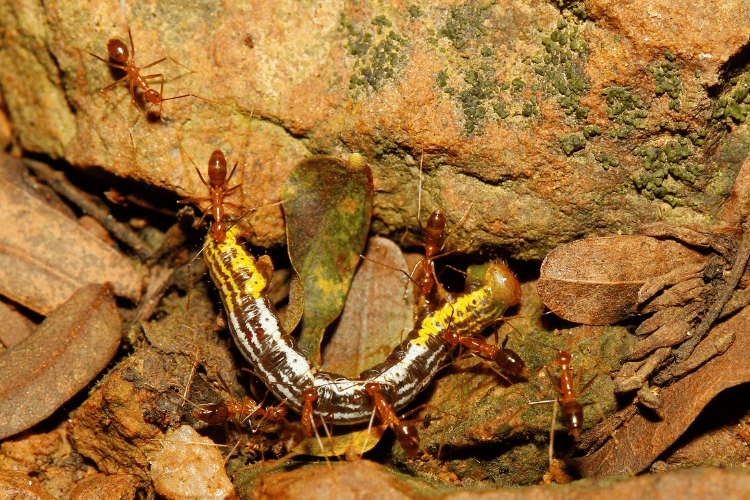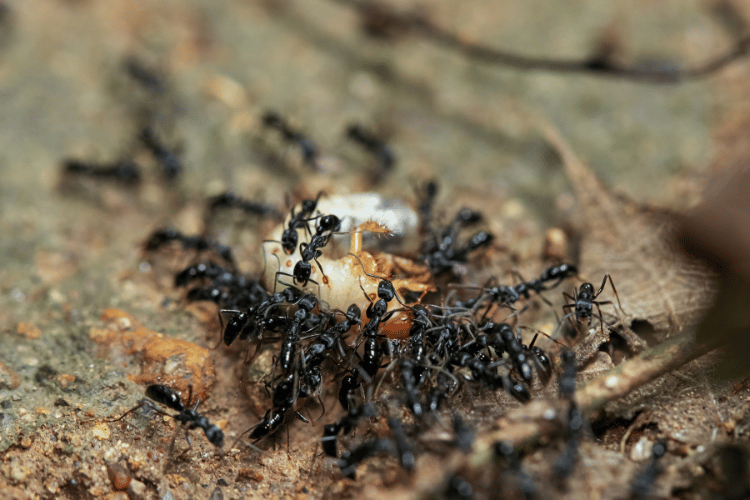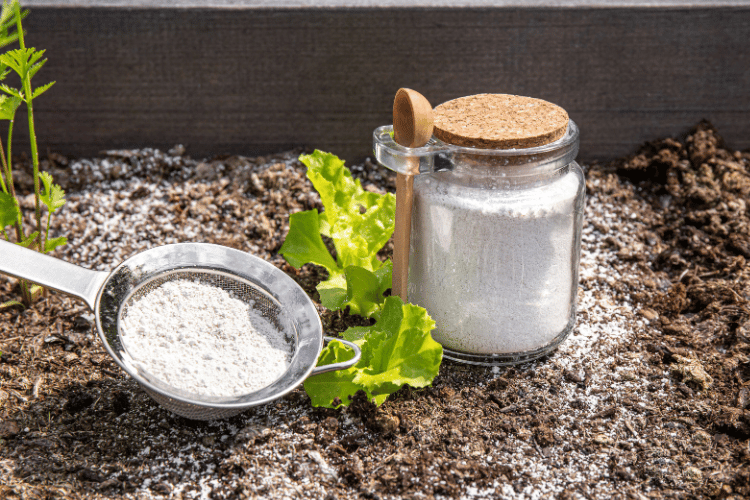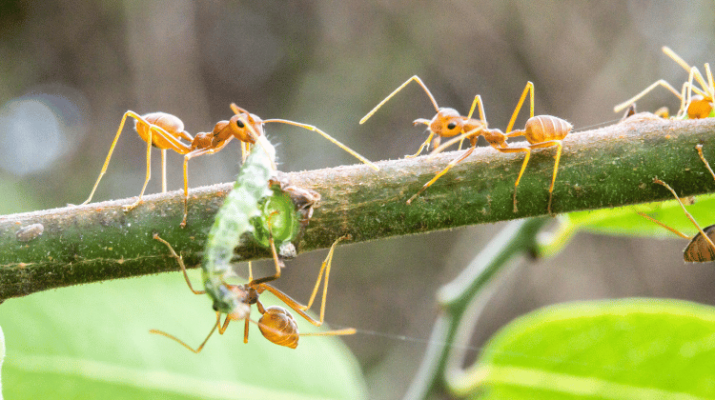While ants might seem like harmless creatures, their presence can throw off the harmony of your composting ecosystem. From potential disruptions to your earthworm buddies’ essential work to a potential dip in the quality of your compost liquid, removing ants from the worm bin is a must.
Ants might have chosen your worm bin as their hangout due to its odor and optimal living conditions. Well, simply altering these conditions should prompt the tiny insects to leave!
Ready to take charge and transform your composting space into an ant-free haven? We’ve got the playbook to restore peace in your composting kingdom. Let’s dive into the ant-repelling techniques that’ll give your composting ecosystem the peaceful and thriving environment it deserves!
Why Are There Ants in Your Worm Bin?

Understanding why insects, such as ants and fruit flies, are drawn to your compost bin is crucial for effectively addressing the issue. Your worm bin is unwittingly a sanctuary for ants, providing a cozy blend of warmth, humidity, and a treasure trove of organic delights.
Suitable Living Environment
Worm bins, with their organic matter and moisture-rich soil, create ideal conditions for ants. While you can optimize the warmth and humidity for the earthworms, this will contribute to the appeal of the bin as a potential nesting site.
Abundance of Food Sources
As the worms break down kitchen scraps and other compostable materials, they create a ready food source for ants, the opportunistic foragers. The decomposing organic matter emits an irresistible aroma, turning your worm bin into their favorite dining spot.
Entry Points for Ants
Ants are resourceful when it comes to finding access points. The clever infiltrators can enter worm bins through small openings, cracks, or gaps in the bin structure. Additionally, if the bin is placed directly on the ground, ants may enter from below.
Formation of Ant Colonies
Once inside, ants don’t just visit; they establish colonies. Ant colonies consist of bustling communities with worker ants, queens, and broods. The formation of these colonies ensures a long-term presence in your worm farm.
Problems That Ants Cause in Worm Bin

Ants, though generally harmless to earthworms, can disrupt the delicate balance within your worm bin, leading to several issues that impede the composting process.
Disruption of Composting Activity
Ants, particularly predatory ones, can mess with the composting activity of your worm bin. That’s because they disrupt the burrows created by earthworms, hindering the natural decomposition process. This interference slows down the rate at which kitchen scraps and other organic matter are transformed into nutrient-rich soil.
Impact on Compost Liquid
When ants infiltrate the worm bin, they consume the decomposing organic materials that serve as worm food. This results in a decreased quantity and quality of the compost liquid, as the worms are deprived of sufficient material to process.
Harm from Predatory Ants
Most common ants won’t harm earthworms. However, the presence of predatory ant species, like carpenter and fire ants, poses a significant threat. These aggressive ants attack compost worms, jeopardizing their well-being, disrupting the harmony of the delicate ecosystem, and leading to a decline in the worm population.
How to Remove Ants in Worm Bin
Effectively dealing with ants in your worm bin involves a strategic approach. Not only should you remove the ant infestation, but you must also find methods to prevent the ants from re-entering your compost bin.
Create an Ant Repelling Barrier
The most effective ant-deterrent strategies to safeguard your bin include:
- Ant Repellents: Opt for ant repellents enriched with essential oils such as peppermint or citrus. The natural aromas create an unappealing barrier for ants, discouraging their presence.
- Home Remedies: Sprinkle a protective line of common kitchen ingredients with pungent smells around the bin’s perimeter. These include cayenne pepper, lemon peel, or cinnamon.
- Diatomaceous Earth: Fortify your composting fortress by applying diatomaceous earth. This fine powder forms an impenetrable barrier, deterring ants without causing harm to your hardworking worms.

Stop Feeding the Worms for a Week
Give ants a clear signal to vacate: stop serving their favorite snacks. While ants quickly lose interest without a food supply, your earthworm allies can endure weeks without fresh food. You can also feed them paper scraps or cardboard, starving the ants in the process.
Keep in mind, though, that your compost liquid might be on a temporary diet too, with fewer food scraps for the worms to work their magic.
Keep the Worm Bin Moist
Craft the perfect environment for earthworms while discouraging ants by controlling moisture levels. Earthworms flourish in humid environments. In contrast, ants are less inclined to stay in areas with high humidity.
Accordingly, maintain a comfortable level of moisture for your earthworms without risking their well-being, and you’ll find ants seeking drier territory.
Apply Slippery Coating to the Base of the Compost Bin
Give ants a sliding exit by applying petroleum jelly or another slippery substance to the base of your compost bin. Ants will struggle to crawl over this slippery terrain, making it an effective barrier.
Keep Your Bin Indoors
Bringing your compost bin indoors creates a fortress that’s harder for ants to breach. Indoor composting also offers year-round composting, shielded from extreme weather.
Additionally, indoor bins are less susceptible to pest interference and provide a convenient way to recycle kitchen waste without trekking outdoors.
Wrapping Up
Having ants in the worm bin can disrupt the composting harmony, impacting both earthworms and the quality of compost liquid.
Understanding the reasons behind ant invasions ensures a thriving composting kingdom. Simply put, ants are drawn to the organic matter in compost bins!
To counteract this, you should implement simple strategies such as ant-repelling barriers, adjusted feeding practices, and maintaining optimal moisture levels. Applying slippery substances to the bin’s base and relocating it indoors provides further defenses.
Banish the ants, empower your earthworm allies, and transform your composting haven into an ant-free, productive space. Happy composting!

